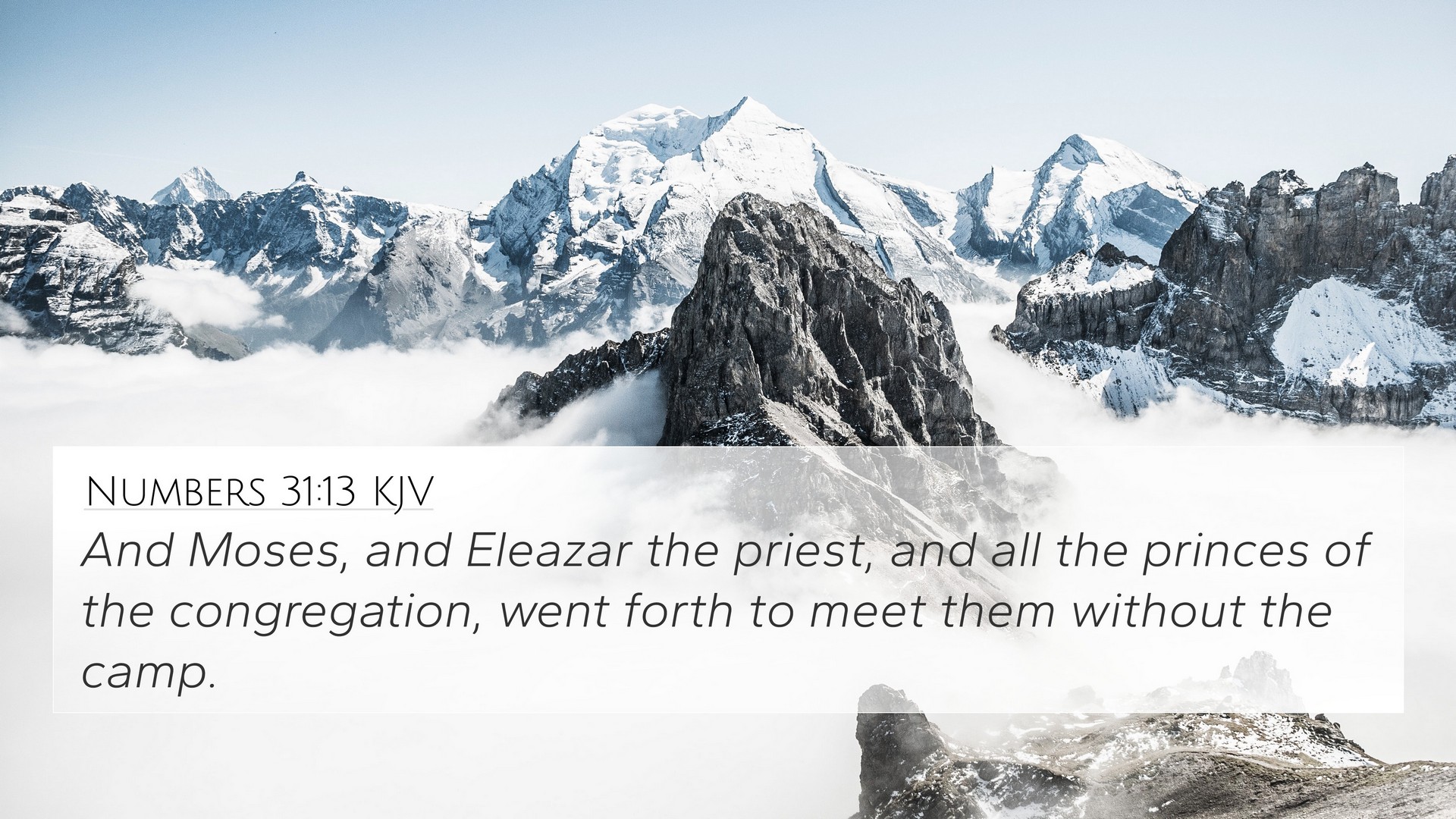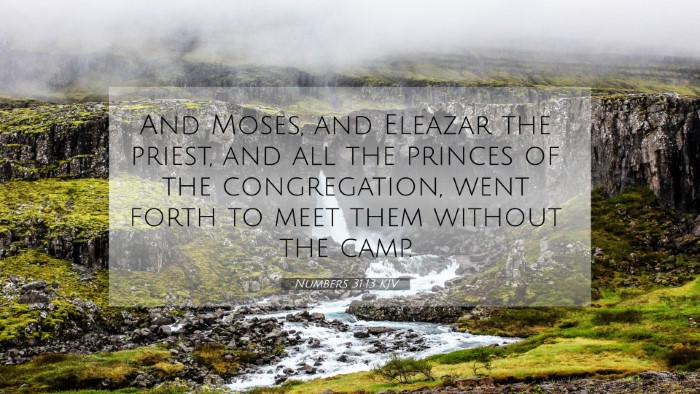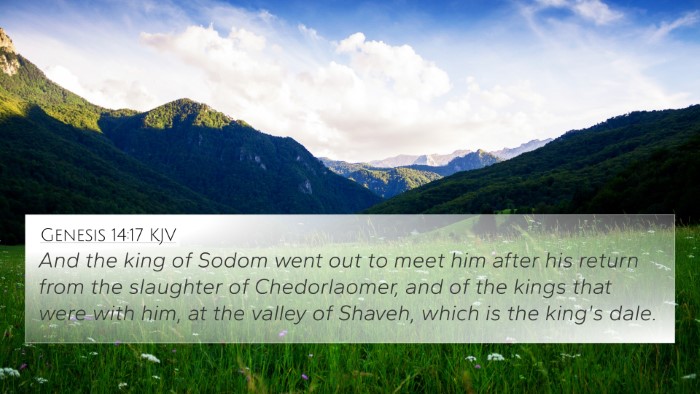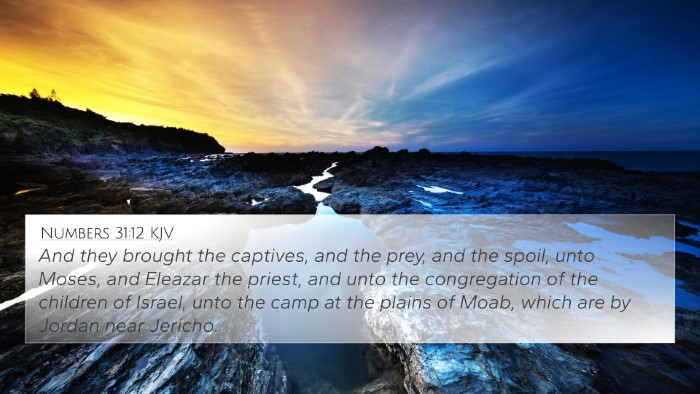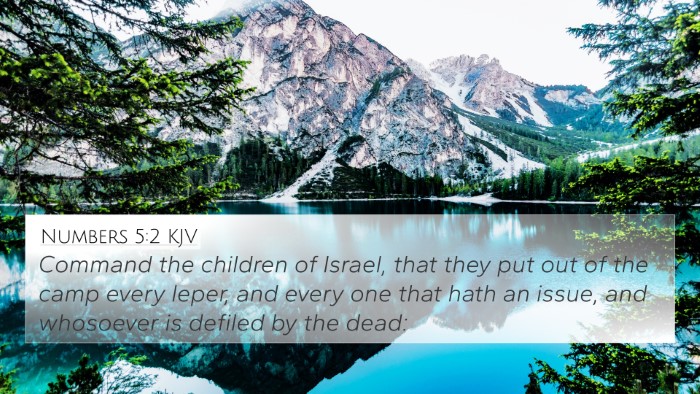Understanding Numbers 31:13
Verse: Numbers 31:13 - "And Moses and Eleazar the priest and all the leaders of the congregation went out to meet them outside the camp."
Summary of Meaning
This verse captures a pivotal moment in the narrative of the Israelites as they engage in the aftermath of a significant battle against the Midianites. Moses, accompanied by Eleazar the priest and the leaders of the community, steps outside the camp to meet the returning warriors. This meeting symbolizes authority, accountability, and communal governance in the context of Israel's societal structure.
Contextual Analysis
The events preceding Numbers 31:13 involve the Israelites' victory over the Midianites, which is a critical episode in the broader narrative of Israel's journey through the wilderness. The significance of this verse lies in its illustration of leadership and the responsibilities that come with victory, as highlighted by commentaries from Matthew Henry and Adam Clarke.
Leadership Dynamics
- Moses' Role: Moses represents divine authority and moral leadership, embodying the expectation of guiding the people with wisdom and righteousness.
- Eleazar's Contribution: Eleazar, as a priest, denotes the importance of religious leadership and the integration of spiritual guidance with military success.
- Community Representation: The involvement of community leaders illustrates the collective responsibility of the Israelites in decision-making processes.
Biblical Cross-References
This verse connects thematically with several other scriptures that illustrate similar principles of leadership, victory, and accountability:
- Exodus 18:21-22: Discusses the delegation of leadership responsibilities to trustworthy individuals.
- Joshua 22:30-31: Shows the importance of communication among leaders after a military campaign.
- 1 Samuel 8:20: Reflects on Israel's demand for a king and the implications of leader choice.
- 2 Samuel 5:3: Highlights the gathering of Israel to make David king, emphasizing collective agreement in leadership.
- Proverbs 11:14: Indicates the need for wise counsel and mutual accountability among leaders.
- Hebrews 13:17: Points to the responsibility of spiritual leaders for the well-being of their followers.
- James 3:1: Warns of the stricter judgment awaiting those who teach and lead others.
Integration of Themes
Understanding this verse requires examining the integration of leadership, accountability, and collective action within Israel's society:
- Thematic Leadership: Leaders are expected to embody both authority and accountability, ensuring justice and righteousness.
- Military and Spiritual Unity: The balance of military success and spiritual guidance underlines the importance of divine favor in victories.
- IDialogue Between Authority and Congregation: The meeting signifies an essential dialogue between leaders and the community, fostering trust and transparency.
Application to Contemporary Understanding
This verse invites readers to reflect on the nature of modern leadership within their own communities and the expectations of accountability that accompany positions of authority. The parallels drawn from the scripture demonstrate the timelessness of these principles, indicating their relevancy in contemporary discussions on leadership ethics.
Tools for Biblical Cross-Referencing
For deeper understanding and exploration of Bible verses that relate to Numbers 31:13, various tools may be employed:
- Bible Concordance: A reference tool that lists the occurrences and contexts of biblical words throughout scripture.
- Bible Cross-Reference Guide: Resources that help identify thematic connections across different texts.
- Cross-Referencing Bible Study: Methods that allow for a comparative exploration of interconnected verses.
- Bible Chain References: Tools that provide sequential scripture references related to a particular theme.
